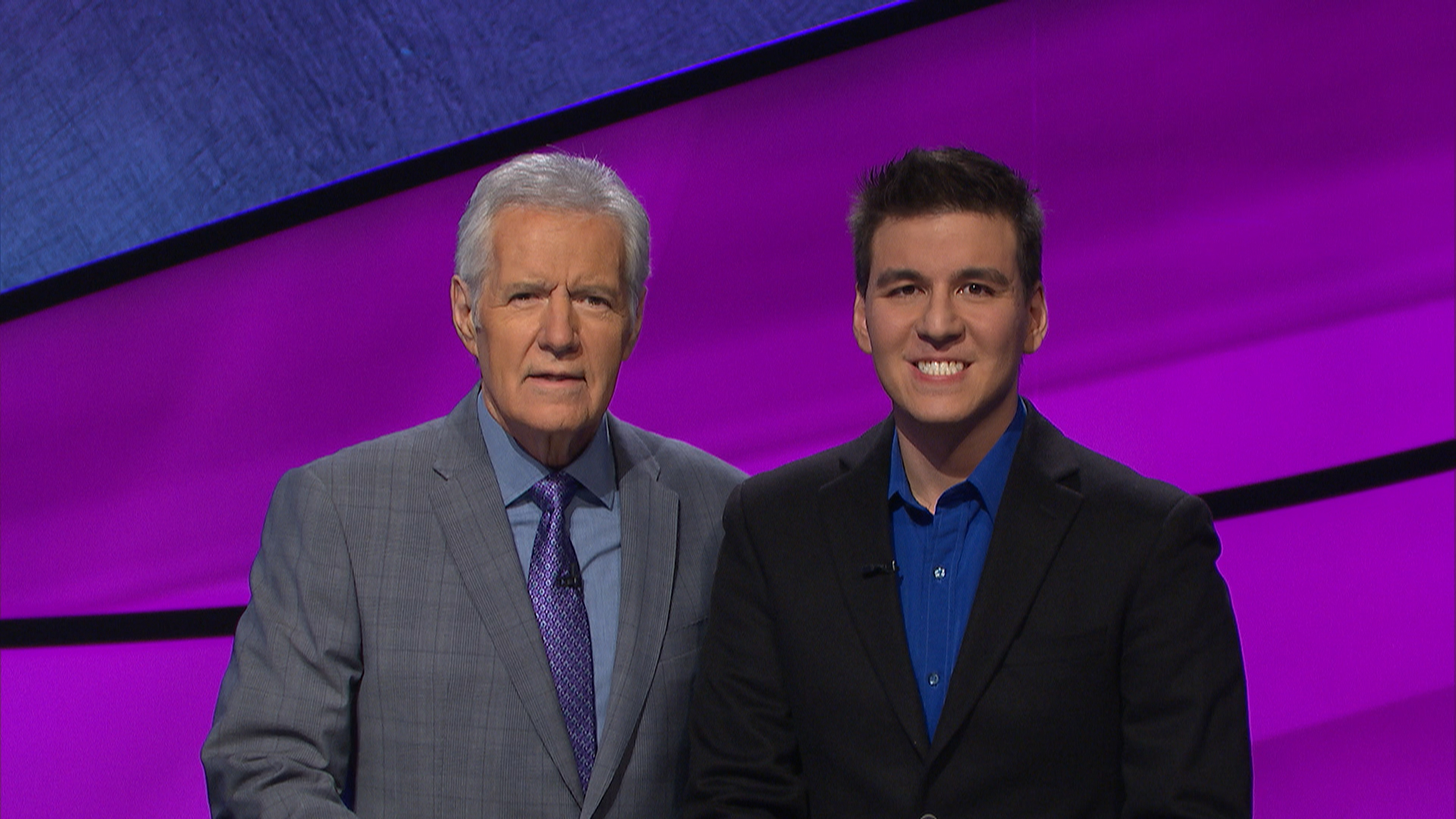Even if you’re not a regular Jeopardy! viewer, you’ve probably heard of James Holzhauer. The professional sports gambler has already set several Jeopardy! records and is being compared with Ken Jennings, who currently holds the records for the longest winning streak and the largest total amount of money won in regular play (excluding special tournaments). Though Holzhauer’s primary strategy appears to be taking monetary risks when given the opportunity to wager and betting high, he couldn’t have gotten to where he is without actually knowing the answers — well, technically questions — on the show.
With categories ranging from scientific advances to sitcom couples, part of being successful on Jeopardy! involves learning and retaining a wide variety of knowledge, and then being able to recall the trivia under intense pressure. So how do the winners do it? And how can the rest of us steal their strategies to use in our own lives?
We asked several Jeopardy! champions — yes, including Holzhauer — to share their best strategies for retaining a lot of information, and remembering it while under stress.
Total recall
While you may not be appearing on the long-running game show any time soon, we’re all faced with scenarios where we’re required to call on information we’ve previously learned — whether it’s giving a presentation, interviewing for a job, or speaking with potential clients. Here are a few Jeopardy!-tested tips for these situations:
Form an emotional connection to information
When it comes to learning new information, Holzhauer tells Thrive that he prefers children’s books over adult texts. He told the New York Times that unless he’s interested in the subject of an adult non-fiction book, he finds it hard to get into. Children’s books, on the other hand, were specifically created to make things interesting for uninterested readers. “You have to find your own way to make new information fun and memorable,” he tells Thrive.
Another of those ways — courtesy of Jeopardy! champ Jennifer Morrow — is to form an emotional connection to the information. She tells Thrive that she recommends creating “some personal cue that signals to your brain that this is information worth hanging onto permanently.” For example, if she was trying to remember that the Atacama Desert is one of the driest places in the world, located in Chile, and is known for its copper mines, she might read about the emotional 2010 rescue of 33 Chilean miners from a copper-gold mine in the middle of the Atacama Desert. “Which one am I likelier to remember a year later, words on a flash card, or footage of a rescue capsule making its way to the surface?” Morrow notes. Probably the capsule.
Find the story arc
While forming an emotional connection to otherwise cold, hard facts is one tactic, three-time Jeopardy! champion Wes Hazard’s strategy involves finding the narrative of the information you’re trying to learn and retain. “Humans are storytelling creatures by nature, it’s just our default mechanism for processing the world,” he tells Thrive. “We seek out patterns and story arcs and invent them when they’re not there. Given that, it makes sense to try to retain info in a way that aligns with how your brain wants to get it.”
So rather than sitting down with a bulleted list of random facts about opera, or the periodic table, Hazard would encourage people to read a biography of Giuseppe Verdi or Dmitri Mendeleev. “You’ll get the same basic information, but it will be structured like a story which should make it easier to retain, while at the same time giving you a sense of why things are important and how they’re related,” he explains. “It will also be a hell of a lot more interesting.”
Learn on location
We all loved going on field trips in school, but according to Jeopardy! champion Monica Thieu — who also recently appeared in the 2019 All-Star Games — hands-on learning in new locations can help us retain information. For example, she says that going to museums is a great way to learn information that you’ll be able to retain later not only because you’re exposed to new facts, but also because you’re having a memorable spatial experience.
“One of the best ways we can leverage our autobiographical memory to help us remember facts is to learn things in interesting contexts so that it makes the memory deeper and stronger,” Thieu, a graduate researcher in psychology at Columbia University, tells Thrive. “Sitting and just cramming a bunch of facts will get the job done, but it won’t produce the most flexible memories you can use in all sorts of contexts.”
Success under fire
Any contestant can tell you about what it’s like to compete on that stage, and possibly give you a tip or two, but Jeopardy! champion Buzzy Cohen is literally writing the book on it. Well, technically it’s an Audible Original series debuting in 2020 — which he will write and perform himself — where he’ll share strategies for performance success in high-stress situations. “In Jeopardy!, and for a lot of other performance situations — like at work, giving a speech at a wedding, taking a test, interviewing, sales — people overemphasize content and underemphasize context,” he tells Thrive. Before you make that mistake, read these tips from Cohen, Holzhauer, and other champions for recalling information under pressure:
Get comfortable with the environment
Whether it’s an appearance on Jeopardy! or your next pitch meeting, you’re going to want to go in prepared. One way to do that is to simulate as much of the high-pressure environment as possible. For example, Holzhauer tells Thrive that he practiced for the show by standing up, wearing dress shoes, and holding a fake buzzer while he watched back-to-back episodes of the show recorded on his DVR in an attempt to recreate the conditions on the Jeopardy! stage.
Along the same lines, Morrow took the time to familiarize herself with the Jeopardy! stage ahead of her appearance, by finding photos of what the view of the clue board looks like from the lectern, the screen for writing your Final Jeopardy! answer, the greenroom, and even the hallway outside the studio. “That way, when I was in Culver City, I didn’t have the additional stress of being in a strange environment, and so felt more confident about my ability to handle the situation,” she says.
Practice in comparable high-stress situations
Though nothing can completely prepare you for the pressure of Jeopardy!, Cohen tried to recreate the same level of stress in other environments. After he won the 2017 Tournament of Champions, he went on Splash Mountain for the first time, and says that it was the closest thing to the Jeopardy! experience he could think of. “There are stress hormones, you’re having fun, but also kind of freaked out and your mind tends to go blank,” Cohen explains.
As effective as that strategy may be, he knew it was not an efficient way to prepare for his next appearance on Jeopardy! at the 2019 All-Star Games. Instead, he tried to think of other situations that would replicate that intense feeling, and ended up at the gym, where he would have his trainer quiz him as he was doing particularly challenging exercises like hanging at the top of a chin-up, or doing push-ups or planks. “By practicing recalling the information through that state, it was a better preparation for the Jeopardy! experience,” he tells Thrive. “I’d study in a relaxed state, but also get used to doing the recall at the heightened [levels of] stress.”
The scientific term for this is “stress inoculation,” and it’s exactly what it sounds like: getting your body and mind used to experiencing stress in lower doses so that when a high-stress situation arises, you’ll be more confident that you can handle it and less stressed in the moment.
Let go of your mistakes
No one likes making mistakes, but when you’re trying to perform in a high-stakes situation, even a small error can throw you off. Other than very specific instances when no mistakes are allowed (like open heart surgery), it’s usually entirely possible to make an error or two and not derail everything, according to Hazard. “The key is to not let it monopolize your attention,” he explains. On Jeopardy! — as well as in non-game-show situations — it’s perfectly normal to get something wrong. But when that happens, Hazard says that we need to immediately forget it (one way is by reframing it as an opportunity do better next time) and move on.
Follow us here and subscribe here for all the latest news on how you can keep Thriving.
Stay up to date or catch-up on all our podcasts with Arianna Huffington here.


